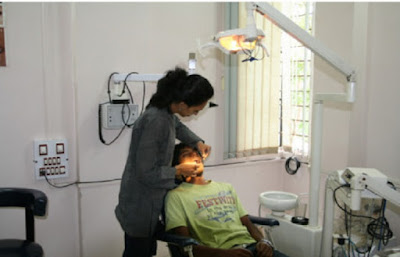What Is M.Sc In Medical Lab Technology?
Medical lab technology is a rapidly growing field, with many opportunities for those with the right qualifications. This article will make you go through what an M.Sc in medical lab technology involves and what benefits you can expect from acquiring one.
Medical labs are a significant part of the healthcare industry, handling everything from routine blood tests to more complex procedures. To qualify for a degree like M.Sc medical lab technology, you'll need to have a degree revolving around relevant fields, such as biology or chemistry. Depending on the amount of skills and knowledge you possess, you may be able to work as a technician, supervisor or doctor.
Subjects of Medical Lab Technology-
Medical Laboratory Technology programs can provide students with the skills they need to work in various medical labs. Programs may include subjects like-
Biochemistry
Hospital Practices and Patient Care I
Basic Pharmacology
Integrated Disaster Management
Personality Development for Allied Health Professionals
Communication Skills for Allied Health Professionals
Fitness and Lifestyle Management
Basic Patient Assessment
Medical Ethics and Legal Aspects
Principles and Practices of Management
Basic Life Support
Trending Specializations of B.Sc Medical Lab Technology
Soft Skills for Allied Health Professional
Career Prospects of MSc Medical Lab Technology-
Medical laboratory technology (M.L.T.) is one of the healthcare industry's fastest-growing and most in-demand careers. With the growing demand for diagnostic testing, M.L.T. professionals play a critical role in maintaining healthcare quality by providing accurate and timely results. M.Sc medical technology eligibility includes a minimum of 55% in a B.Sc degree.
While many career options are available to M.L.T. professionals, some of the most common paths include becoming a lab technician, medical assistant, or medical laboratory scientist. Becoming a lab technician is the most common career path, with almost half of all M.L.T. professionals working this way at some point in their careers. As a lab technician, you will typically work under the supervision of a doctor or other specialist to perform routine tests and carry out treatments. Medical assistants help patients by carrying out basic medical procedures and senior doctors.
Benefits of MSc in medical lab technology-
- Increased knowledge and skills: With an MSc in medical lab technology, you will have a deep understanding of the latest methods and technologies, meaning you can produce accurate results faster and more efficiently.
- Increased salary potential: As medical lab technology becomes increasingly complex, there is a greater demand for qualified professionals. An MSc in medical lab technology will increase your chances of landing a high-paying job, especially if you are experienced in the field.
- Enhanced career prospects: A MSc in medical lab technology can help you find a career that is perfect for you. With experience in this field, you will likely find many opportunities to move up the ladder within the medical industry.



Comments
Post a Comment